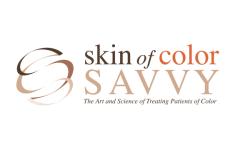
OR WAIT null SECS
No Adverse Events Recorded in Psoriasis Patients Post-COVID-19 Vaccination
Investigators added that clinical condition at the time of vaccination and biologic treatment did not influence the humoral response in the enrolled patients.
In a recent letter to the editor, investigators from Rome detailed the immunogenicity and safety of the anti-SARS-CoV-2 BNT162b2 vaccine (Pfizer-BioNTech) in patients with psoriasis treated with biologics, stating that no significant adverse events or flares were observed among this patient population.
Dario Graceffa, PhD, San Gallicano Dermatological Institute, IRCCS, Rome, and fellow investigators noted the vaccine’s effectiveness in inducing anti-Spike immunization in a majority of individuals.
However, only limited data are available regarding the immunogenicity and safety of mRNA vaccines in psoriatic patients who are treated with biologics.
As such, Graceffa and colleagues’ conducted a study to determine the risk of adverse events from the COVID-19 vaccine in this patient population.
The Methods
From April 1 to May 31, 2021, total of 48 patients with psoriasis whom were treated with biologics were enrolled in the study to assess the humoral response to the Pfizer-BioNTech vaccine.
Additionally, 48 sex, age, and body mass index (BMI) matched healthy subjects were enrolled as controls.
Neutralizing IgG titers anti-SARS-CoV-2 were evaluated using LIAISON® SARS-CoV-2 S1/S2 IgG (DiaSorin®, Italy) at baseline (first injection), as well as 3 weeks later, and 4 weeks post-booster.
The cutoff of 15 AU/mL indicated by DiaSorin® was considered valid to discriminate responders from non-responders to vaccination.
Data on vaccine safety were collected at the 3-week mark, as well as 4 weeks post-booster via interviews with participants. Flare-ups of the underlying disease, and local and systemic side effects were recorded after vaccine administration.
Investigators noted that neither suspension nor dose modification of any biologic therapy was planned. However, patients were advised to discontinue methotrexate for 1 week after each dose of the vaccine in accordance with the recommendations of the American College of Rheumatology.
Of the total number of participants enrolled in the study, 20 had only skin involvements while 28 were diagnosed with psoriatic arthritis. Additionally, 43 patients were obese, whereas 5 were normal weight with an additional risk for immune system impairment.
A total of 21 patients (43.7%) were on anti-TNFtreatment while the other 27 (56.3%) were being treated with anti-interleukin drugs.
The Findings
Investigators observed a statistically significant increase of antibody titers on week 3 and 4 weeks post-booster in both psoriatic patients and those in the control group when compared to baseline.
However, no statistically significant in the antibody response of patients with psoriasis or controls was observed.
Antibody titers on both post-vaccine detections were significantly lower in all patients receiving combination therapy when compared to those with biologic monotherapy (p=0.001).
Only 1 female patient on combination therapy was non-responsive to the vaccine, and old age was independently associated with a reduced antibody response to the vaccine (p=0.004).
Overall, investigators found that biologic treatments and clinical condition at the time of vaccination had no influence on the humoral response in the enrolled patients, stating their data “confirm a favorable risk-benefit profile of BNT162b2 in psoriatic patients”.
The study, “Immunogenicity and safety of anti-SARS-CoV-2 BNT162b2 vaccine in psoriasis patients treated with biologic drugs,” was published online in the Journal of the European Academy of Dermatology and Venereology.


